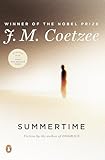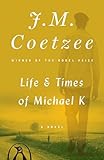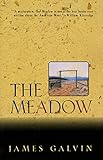 I began 2010 in Provincetown reading J. M. Coetzee’s latest book, Summertime. Though published as a novel, Summertime can be read as a sequel to Coetzee’s two volumes of memoir, Boyhood: Scenes from Provincial Life and Youth: Scenes from Provincial Life II, both of which Coetzee wrote in the third person. In Summertime, a famous writer named John Coetzee has died. The book is made up largely of a young biographer’s interviews with various people (all but one female) who once knew the writer. Much of what these people have to say is unflattering, at times contemptuous and even cruel. When their words are put together with excerpts from the writer’s journals, a fascinating—if less than lovable—portrait of “Coetzee” emerges. This is a strange, poignant, and often very funny hybrid of a book, though, for me, not quite as haunting as the earlier autobiographical works, particularly Boyhood.
I began 2010 in Provincetown reading J. M. Coetzee’s latest book, Summertime. Though published as a novel, Summertime can be read as a sequel to Coetzee’s two volumes of memoir, Boyhood: Scenes from Provincial Life and Youth: Scenes from Provincial Life II, both of which Coetzee wrote in the third person. In Summertime, a famous writer named John Coetzee has died. The book is made up largely of a young biographer’s interviews with various people (all but one female) who once knew the writer. Much of what these people have to say is unflattering, at times contemptuous and even cruel. When their words are put together with excerpts from the writer’s journals, a fascinating—if less than lovable—portrait of “Coetzee” emerges. This is a strange, poignant, and often very funny hybrid of a book, though, for me, not quite as haunting as the earlier autobiographical works, particularly Boyhood.

 The end of 2010 finds me in Marfa, Texas, reading Coetzee again. Coetzee has long been a favorite writer of mine, the restraint and asceticism of his short books making so much other literary writing seem undisciplined and turgid by comparison. I had read almost all his work, but in the house where I’m staying I found two novels I hadn’t gotten around to yet: The Age of Iron and Life and Times of Michael K. The bleakness of the characters’ lives (hopelessly sick, poor, friendless souls crushed by South African society’s brutal systems) makes for almost unbearable reading. Yet Coetzee seems to me one of the few contemporary writers whose work can be called “necessary” without fear of overstatement. And who else could have written Waiting for the Barbarians and Disgrace?
The end of 2010 finds me in Marfa, Texas, reading Coetzee again. Coetzee has long been a favorite writer of mine, the restraint and asceticism of his short books making so much other literary writing seem undisciplined and turgid by comparison. I had read almost all his work, but in the house where I’m staying I found two novels I hadn’t gotten around to yet: The Age of Iron and Life and Times of Michael K. The bleakness of the characters’ lives (hopelessly sick, poor, friendless souls crushed by South African society’s brutal systems) makes for almost unbearable reading. Yet Coetzee seems to me one of the few contemporary writers whose work can be called “necessary” without fear of overstatement. And who else could have written Waiting for the Barbarians and Disgrace?
 For years people have been urging me to read James Galvin’s The Meadow, and this year I finally did. The Meadow is the story of a particular piece of land in a mountainous region on the border of Colorado and Wyoming over a period of a century. It is both a natural history of the place and a portrait of the various people—ordinary in some ways, utterly extraordinary in others—who have struggled to make their lives there. As the meadow lies on the border of two states, so The Meadow lies between fiction and nonfiction. Not like any other book I’ve ever read, almost a new genre, it contains passages as beautifully written as anything in American literature. When I read work as fine as that of either of these two wonderful writers I think: I’ll write like that in heaven.
For years people have been urging me to read James Galvin’s The Meadow, and this year I finally did. The Meadow is the story of a particular piece of land in a mountainous region on the border of Colorado and Wyoming over a period of a century. It is both a natural history of the place and a portrait of the various people—ordinary in some ways, utterly extraordinary in others—who have struggled to make their lives there. As the meadow lies on the border of two states, so The Meadow lies between fiction and nonfiction. Not like any other book I’ve ever read, almost a new genre, it contains passages as beautifully written as anything in American literature. When I read work as fine as that of either of these two wonderful writers I think: I’ll write like that in heaven.
More from a Year in Reading 2010
Don’t miss: A Year in Reading 2009, 2008, 2007, 2006, 2005
The good stuff: The Millions’ Notable articles
The motherlode: The Millions’ Books and Reviews
Like what you see? Learn about 5 insanely easy ways to Support The Millions









